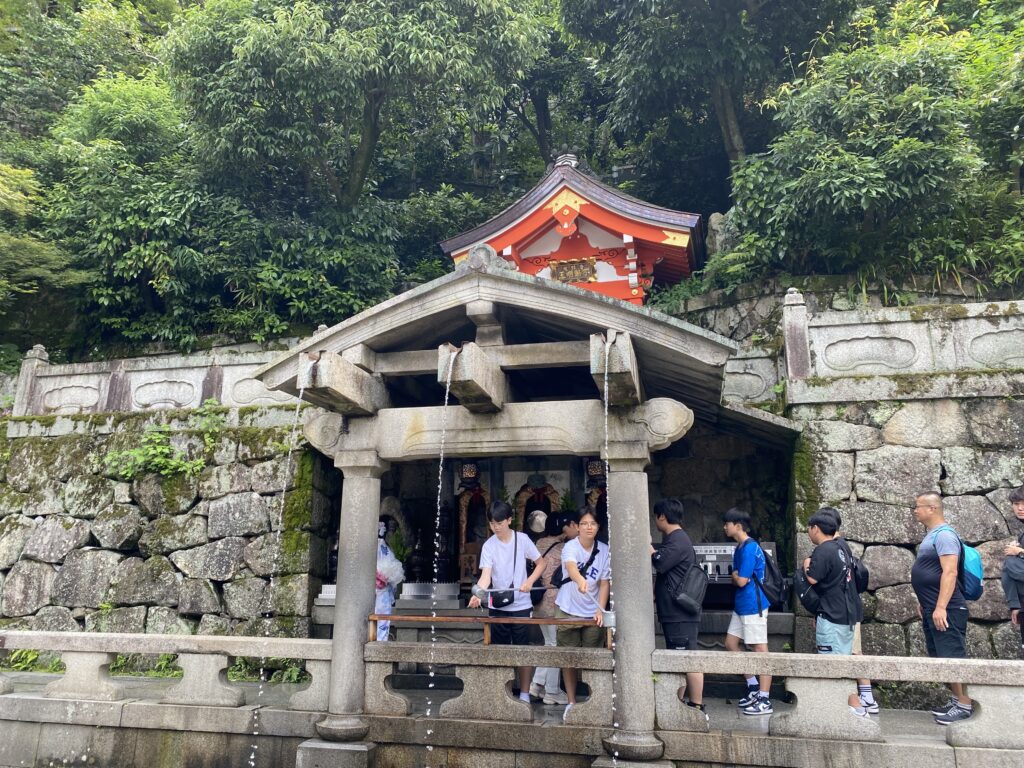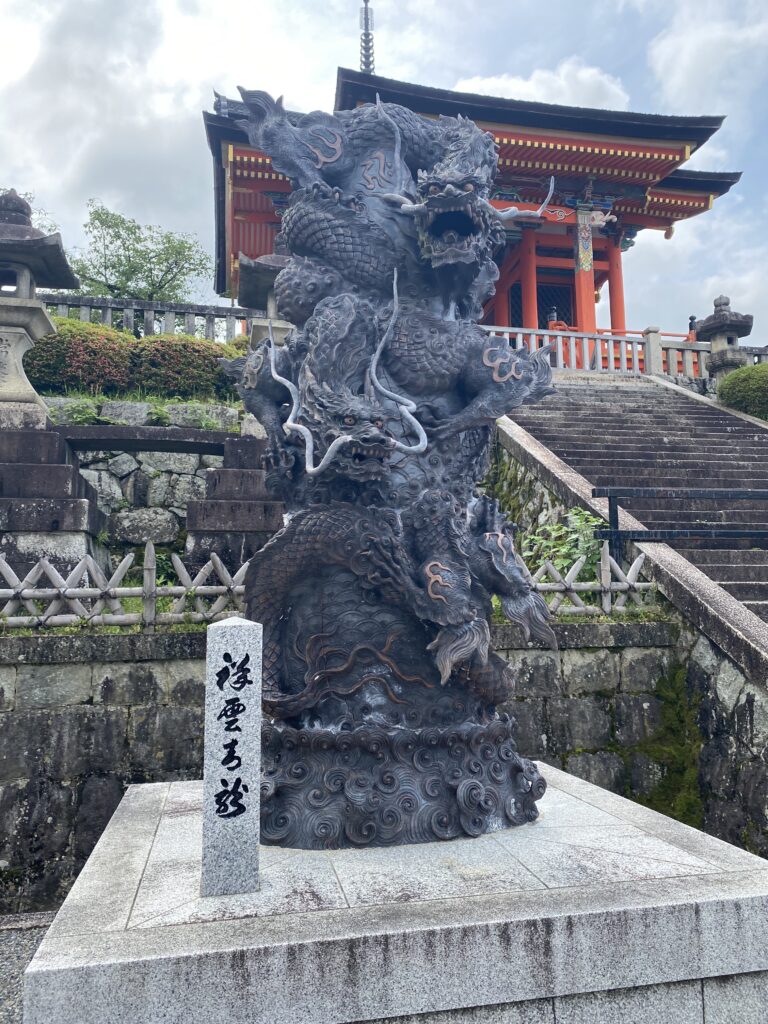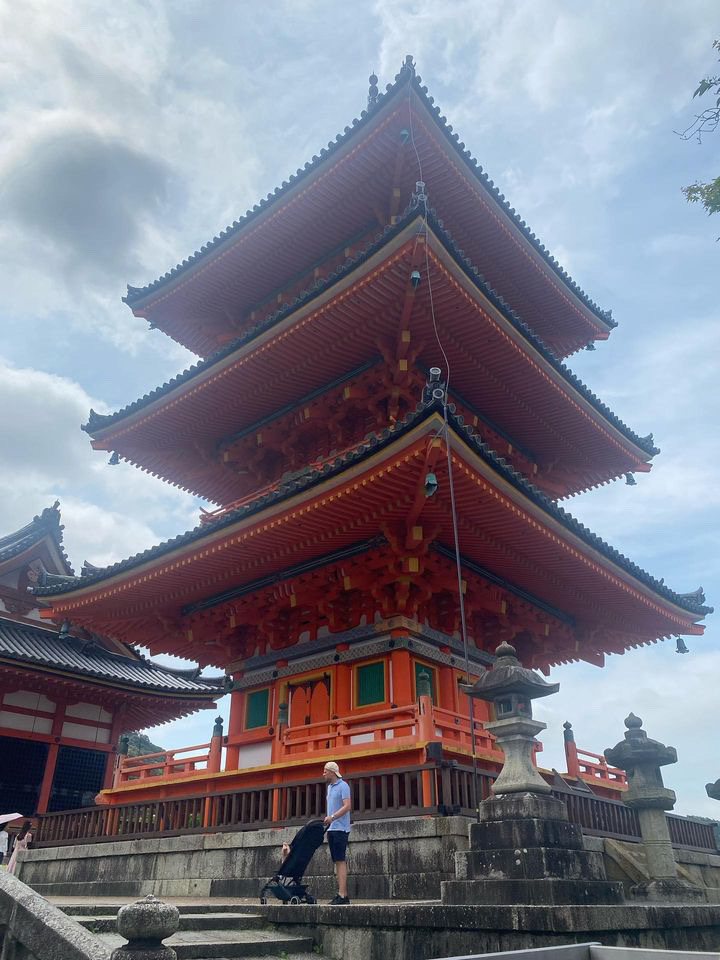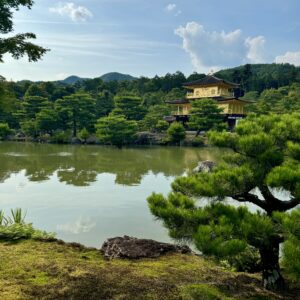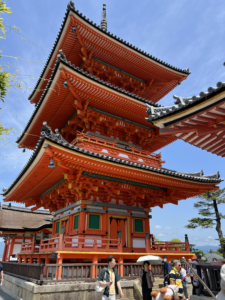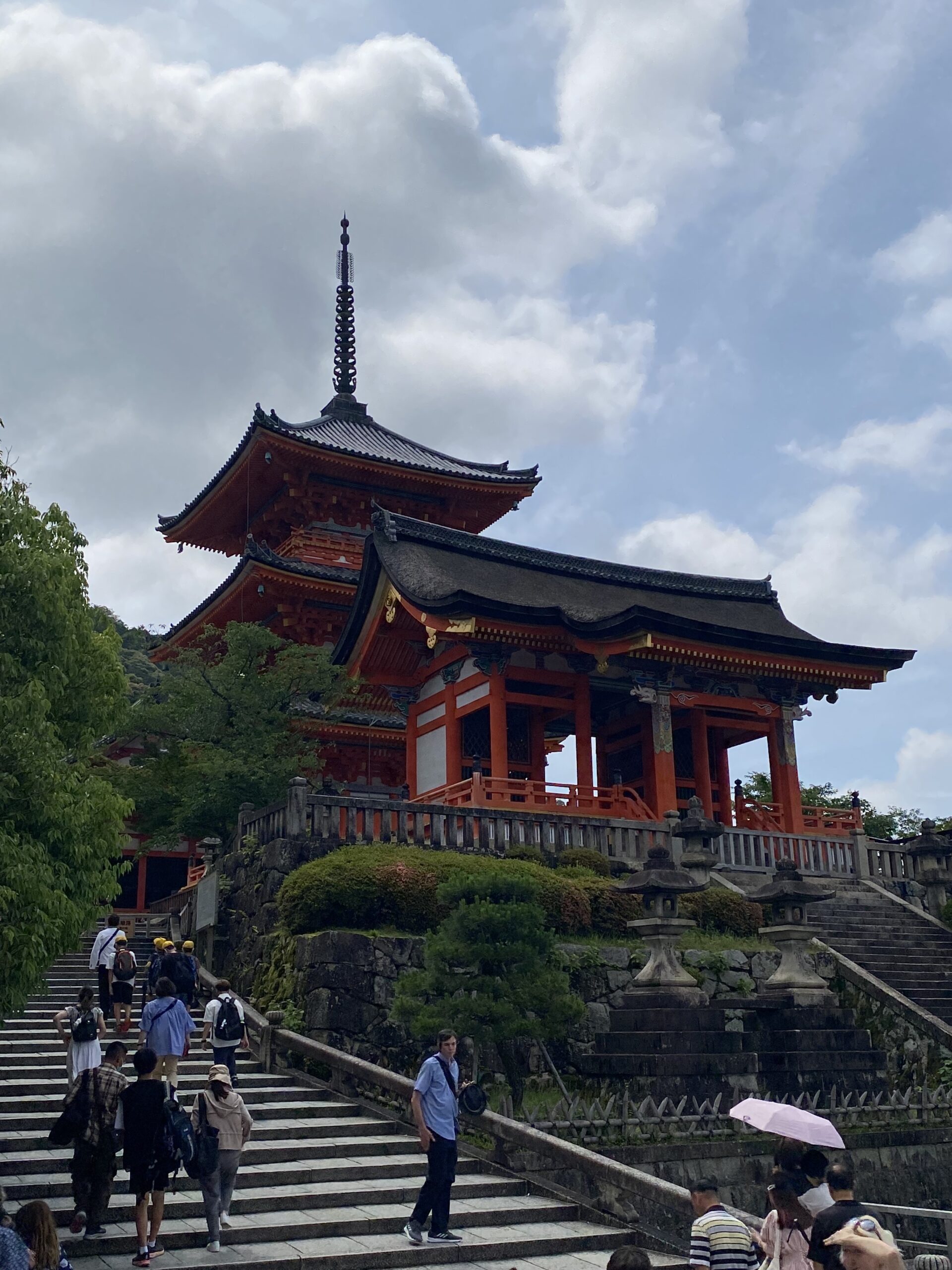
Buried in the hills of Kyoto, Japan, Kiyomizu-dera Temple stands as a testament to the country’s rich cultural and religious heritage. With its breathtaking views, magnificent architecture and storied history, this Buddhist temple has captivated the hearts and minds of visitors for centuries.
The temple was founded in 780 AD and is part of the Historic Monuments of Ancient Kyoto. Its name, Kiyomizu, translates to “pure water” in English, referring to the Otawa Waterfall located within the temple grounds. The water has three different purifying purposes ranging from longevity, success in studies, and a fortuitous love life. The temple is dedicated to the Buddhist deity Kannon, the goddess of mercy and compassion.
One of the most distinctive features of Kiyomizu-dera is its unique wooden structure. The main hall of the temple, known as the Hondo, is constructed without the use of any nails. The stunning architecture is a direct indication of the skill and craftsmanship of the ancient builders. The Hondo sits on a steep slope, supported by a system of wooden stilts that extend out from the main structure. This design allows visitors to relish all-encompassing views of the city of Kyoto which is peculiarly breathtaking during the cherry blossom season in spring.
One of the temple’s most stunning features is the large wooden terrace, known as the Kiyomizu Stage that bulges from the main hall. Supported by a complex system of 139 pillars, the stage offers a panoramic view of the city of Kyoto and its exuberant surroundings. It is said that those who took the leap from the stage and survive would have their wishes granted, although those types of practices are no longer allowed.
Another distinctive and awe-aspiring feature of Kiyomizu-dera is the presence of dragon statues. In the context of Kiyomizu-dera, the dragon statues are viewed as divine creatures associated with water and rain, believed to bring good fortune and protect against demons entering a temple. The temple’s proximity to the Otawa Waterfall proves this relationship with water, as the waterfall is believed to have purifying properties. Visitors to the temple can drink from three streams of water beneath the waterfall. The dragon statues also have a spiritual significance in Buddhism. The dragon represents wisdom, strength, and protection that shield us from universal dangers. The dragon’s ability to fly and control the weather symbolizes its power.
Kiyomizu-dera is also home to several cultural treasures. The temple possesses a collection of Buddhist statues and artifacts, including statues of the Eleven-faced Kannon, the main deity of the temple. These statues are complexly carved and are considered paramount works of art. Kiyomizu-dera also includes a three-storied pagoda (sacred building), a delightful garden with cherry and maple trees, and a Jishu Shrine dedicated to the god of love and matchmaking.
Beyond its cultural and historical importance, Kiyomizu-dera is a living testament to the ever-lasting spiritual practices of Buddhism in Japan. It continues to attract tourists from around the globe to find comfort within, seek enlightenment and connect to something greater than themselves. The temple’s teachings of compassion, mercy and the pursuit of wisdom connect with visitors, leaving a sincere impact on their hearts and minds.
In conclusion, Kiyomizu-dera stands as an admired Buddhist temple that has stood the test of time in the captivating city of Kyoto. Its magnificent architecture, panoramic views, and the presence of dragon statues make it a truly unique and a ravishing destination. As visitors explore its hallowed halls, drink from its purifying waters, and immerse in the bliss of its surroundings, they become part of a tradition that spans centuries, binding with the spiritual heritage of Japan.
Kiyomizu-dera is a sacred sanctuary that not only preserves the past but also inspires and enlightens those who seek solace and spiritual awakening in the present.
